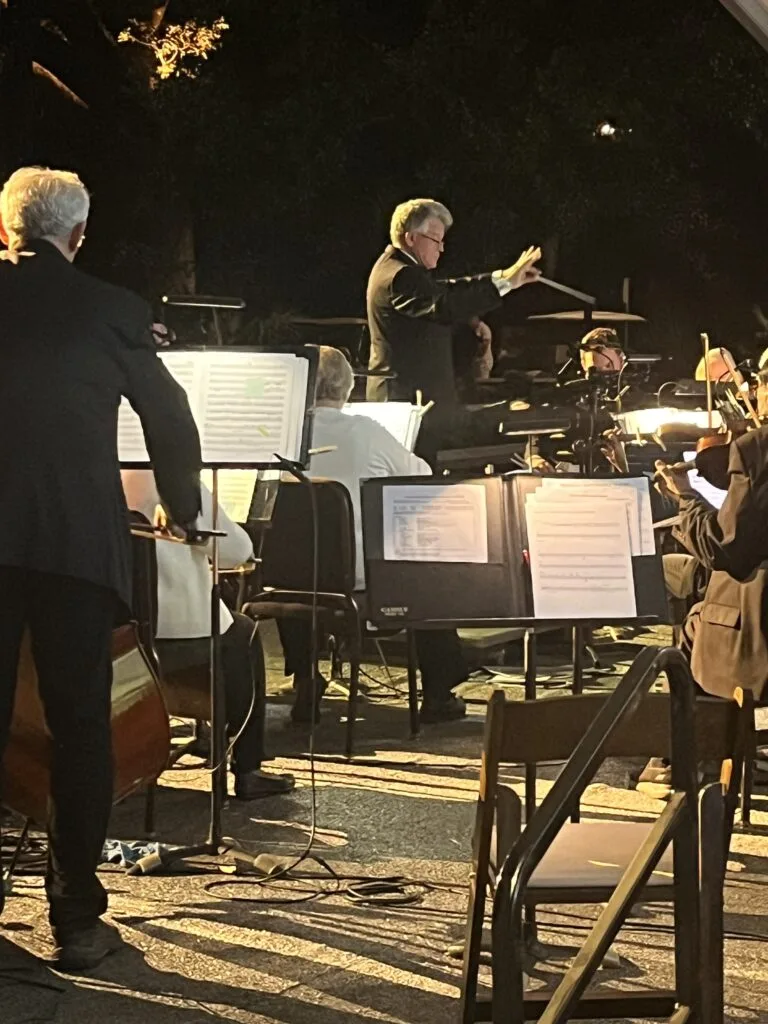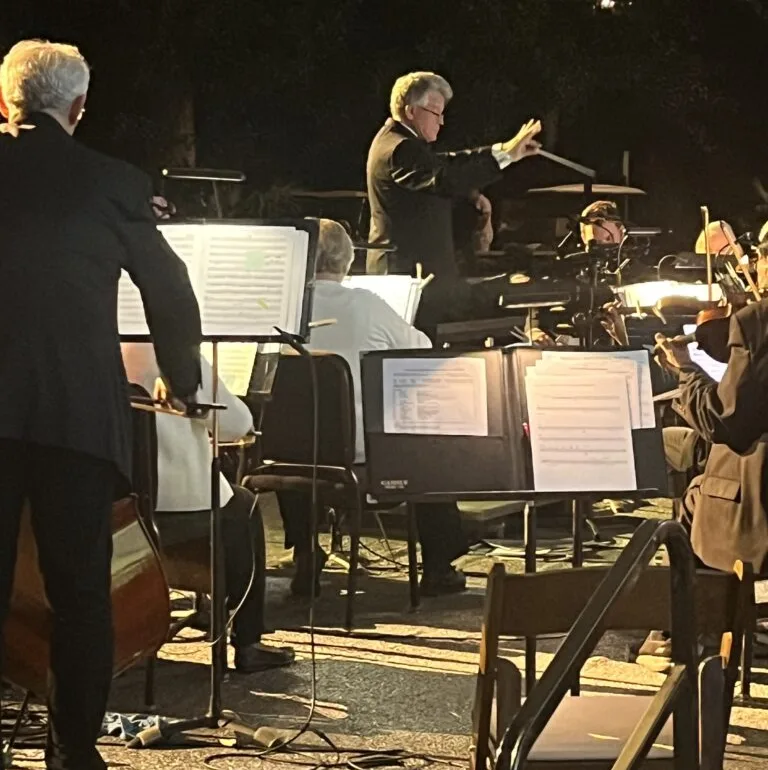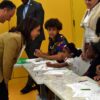I have such a hard time watching the news these days. It just seems like the world is coming apart at the seams in real time. I wrote my last column about a recent visit to the Flight 93 Memorial with a message to “Never Forget” and for us to be on guard. Well, with World War III looking like it may actually happen — hopefully not — I thought that this week’s message should be more about an effort to find common ground with people and find a way to promote peace.
I know, how naive of me. So call me a dreamer, but I for one am hoping and praying that dispassionate, commonsense leaders, with powerful memories of the horror of war, will rise to the occasion and find more diplomatic solutions for what is happening halfway across the globe.
Perhaps I needed a little divine intervention to inspire me to take a chance on what I am sure will be at least a somewhat controversial response from readers. So be it. I am compelled to try.
Last week was the annual Shrimp and Arts Festival in Old Town Bluffton and we attended a free pops concert featuring the Hilton Head Symphony Orchestra at the Martin Family Park in the Historic District. The crowd of over 500 people were treated to great songs from movie soundtracks, Broadway musicals and Grammy-winning artists. It was a picture-perfect night complete with a crescent moon and an appreciative crowd.
Part way through the opening set, the orchestra conductor, Grammy-nominated maestro John Morris Russell, stopped to tell the story of a very familiar song from my youth, which I am sure many of you will recognize, entitled “Kumbaya.” He told the audience that the African American spiritual song had a local origin from the late 1920s Gullah people, who have been inhabitants of the Lowcountry for over 200 years. The orchestra’s rendition of “Kumbaya” gave me goosebumps and it inspired a thought: Given the conflicts in the Middle East and around the world, we could all use a little more Kumbaya in our lives right now.
Kum bay ya, my Lord, kum bay ya;
Kum bay ya, my Lord, kum bay ya;
Kum bay ya, my Lord, kum bay ya,
O Lord, kum bay ya.
Being an amateur history buff who loves American Revolution and Civil War history (which we have plenty of here in South Carolina), I immediately jumped online after the concert to learn more about the Gullah people, their history as slaves brought from West Africa, their fight for freedom during the Civil War and their ties to one of my favorite childhood songs.
According to a blog post titled Kumbaya: History of an Old Song by Stephen Winick at the Library of Congress:
“The most common claim made today about the origins of ‘Kumbaya’ is that it is from the Gullah-Geechee people of coastal Georgia and South Carolina. A Gullah origin is certainly closer to the truth than any of the previous theories.”
The song is an African American spiritual “that was collected in the 1920s from the Gullah — or Geechee — people of the South Carolina and Georgia coast,” according to Jeff Place of the Smithsonian Institution’s Center for Folklife and Cultural Heritage. “The Gullah have always fascinated folklorists because they have kept major parts of their African language and speak in a unique English dialect to this day.” Kumbaya translates into “Come by here.“

Per Wikipedia, “the song enjoyed newfound popularity during the American folk music revival of the early to mid-1960s, largely due to Joan Baez’s 1962 recording of the song and became associated with the Civil Rights Movement of that decade.” It was also a popular anti-war theme during the Vietnam war in the late 1960s.
However, according to a 2012 Linton Weeks NPR opinion column, somewhere along the line “Kumbaya” went from being “a black Christian song for peace and righteousness” to “a campfire paean to brotherhood.” Worse yet it soon became synonymous with “drinking the Kool-Aid” and passively going along with the crowd, especially in politics. A song about peace and compassion was suddenly being used as a sarcastic response. “So and so wants us all to sing ‘Kumbaya’ and pretend to get along.” Rather than “Kumbaya” representing strength and power in togetherness and harmony as it once did, the word has come to reflect weakness and wimpiness. Vanderbilt University political scientist John G. Geer was quoted in The New York Times saying that invoking kumbaya “lets you ridicule the whole idea of compromise.”
Public trust in the federal government, which has been low for decades, has returned to near record lows following a modest uptick in 2020 and 2021. Currently, fewer than two-in-10 Americans say they trust the government in Washington to do what is right “just about always” (1%) or “most of the time” (15%). Given this sad revelation, perhaps it’s time we return “Kumbaya” to its original meaning and ask our leaders to invoke the spirit of the song to reach across the aisle for the greater good and to do their best to keep the peace.
Now I’m going to switch gears a bit and invoke the spirit of Kumbaya to ask for your assistance to help a native State College couple with a positive act of kindness during this time of fear and uncertainty. Matt and Shelby Seybert are currently living and working in Taiwan. The couple have applied to adopt two Taiwanese boys to bring back to the U.S. and they need our support. If you know the Seybert family, then you know they are humble, family-oriented people who always think of others first.
As a 10-year-old, Matt was diagnosed with leukemia and from 2000 to 2004 our Penn State hockey team “adopted” him as our THON child. He was a regular in our locker room and even on our bench for pre-game warm-ups, and we visited the Seyberts (Ron, Jill, Matt and his sister, Sara) at the Hershey Medical Center and their home in State College. With the love and support of his family, friends and medical team, and perhaps an assist from a caring group of college hockey players, Matt was able to overcome childhood cancer twice successfully. I even wrote about Matt’s incredible battle in my book, “The Power of Pragmatic Passion.” Matt went on to marry his sweetheart Shelby (I was fortunate to be in their wedding party) and the two eventually set off to Taiwan for their careers.
The congregation at Calvary Church at Harvest Fields in Boalsburg, the Seyberts’ home church in Happy Valley, have already provided tremendous support. I reached out to many of my former Icer players, parents and boosters regardless of whether they were involved during the time that Matt was our THON child, to help with this challenge and I am proud to say they have responded in a big way.
So, I am invoking the true spirit of “Kumbaya” to ask for your financial support for Matt and Shelby Seybert’s adoption project. If you see it in your heart to make a difference, just visit bothhands.org
I hope you will join me in helping to restore the true meaning of “Kumbaya,” to pray for our leaders to be wise in their decision on the world stage and to help on a local basis with a positive outcome for Matt and Shelby.



